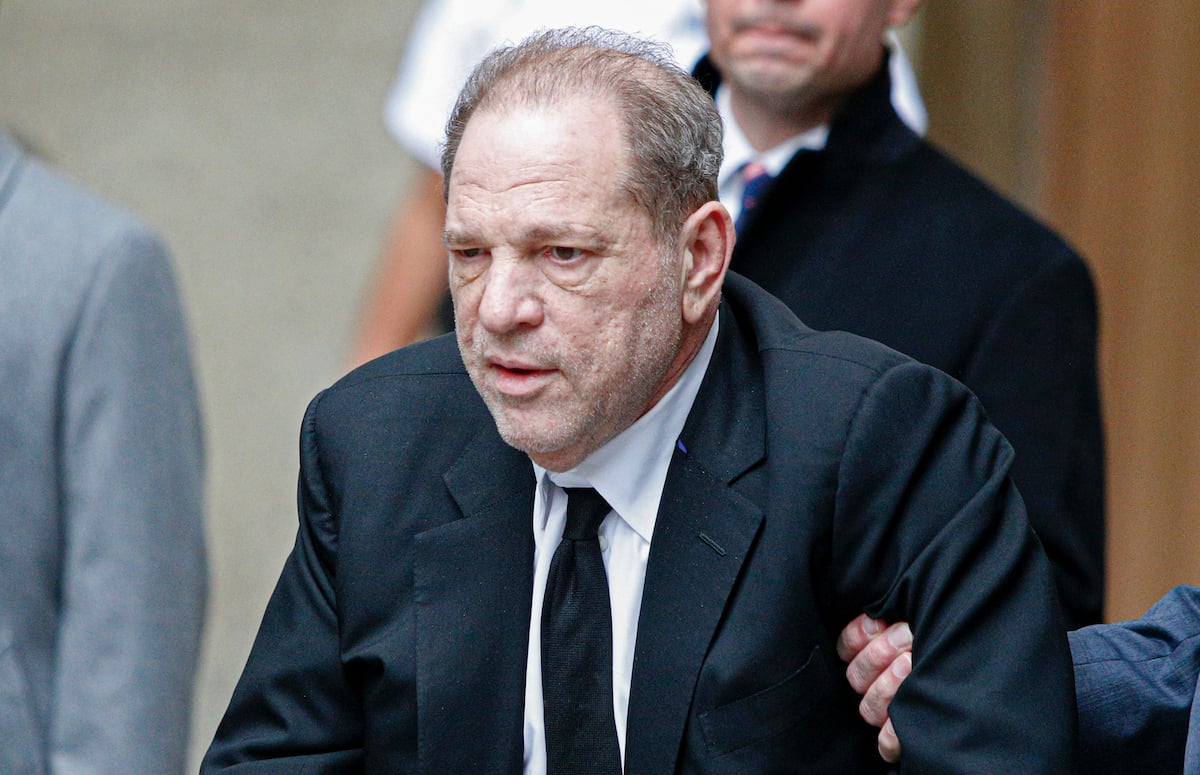In what is sure to be the first of many media rounds for a member of the Harvey Weinstein jury, a male juror named Drew sat down with Gayle King of CBS to discuss how they came to the verdict, and of course, the comment drawing the most attention is Drew’s claim that the verdict had nothing to do with #MeToo.
“There is no message,” the juror explained. “We were there to do a job and make a decision based on the information that was presented to us and we have absolutely no stance or voice or opinion as to any larger movement.” He added that the larger context of this conviction for society was no discussed in jury deliberations.
On its face, this comment seems dismissive and a bit offensive. Of course this verdict carried a message. It made it possible for us to write the phrase “Harvey Weinstein, convicted rapist” which matters to so many women and victims of sexual harassment and assault across the world.
But from a legal perspective, Drew is correct. Juries aren’t supposed to consider the broader impact of their verdict or what it “means.” They are, ideally, supposed to make their decision based only on the fact of the case as presented, and if there is reasonable doubt (in criminal cases) the verdict is not guilty. That’s why lawyers on both sides attempt to select a jury that will do that.
Jurors decide based on legal criteria alone, which is what it sounds like Drew did, as his discussion of the crimes sounded just like jury instructions outlining the legal criteria for rape in the first degree: “It wasn’t rape in the first degree. There was no physical compulsion or threat of bodily harm or death, but there was no consent given despite a lack of physical resistance and a reasonable person should have known there was no consent given in that instance.” Thus, rape in the third degree.
Drew reiterated that rape can happen between anyone, even if there was a prior consensual relationship, which means he certainly understood why this was a crime. But he also explained that the deliberations were tense and fraught. So even if they weren’t talking about the larger context of the case, they certainly felt the pressure.
A fully impartial jury that considers only the facts is ideal. However, this is the real world. No one lives in a bubble and there are systemic and societal biases in play that good jurors must overcome. In this case, Drew seems to have taken his job seriously, and even found some room for sympathy for the man he convicted.
“I’ll tell you I’m sick about it because he’s a human being and he’s going home that night and knowing that he’s walking into court Monday morning and potentially not leaving,” Drew said. “Regardless of what any human does to any other human, for me to affect another person like that really, really took a toll on me.” That’s an interesting perspective, and not unwarranted.
Drew, whether he is sincere or not, is saying all the things both defense and prosecutors want to hear in an ideal juror: that they will not consider anything besides the facts and the law, that they understand the deep seriousness of what they are doing, and that they will listen to the law and instructions.
Whether or not the jury considered the #MeToo movement, a movement started by the revelations against Weinstein, this verdict is a part of that larger context. The fact that Weinstein was convicted, that in the face of impartial justice he was found guilty, is monumental and whether intended or not, it sends a message that rapists like Harvey Weinstein will no longer be protected by their power.
(via The Hollywood Reporter)
Want more stories like this? Become a subscriber and support the site!
—The Mary Sue has a strict comment policy that forbids, but is not limited to, personal insults toward anyone, hate speech, and trolling.—










Published: Feb 28, 2020 11:53 am